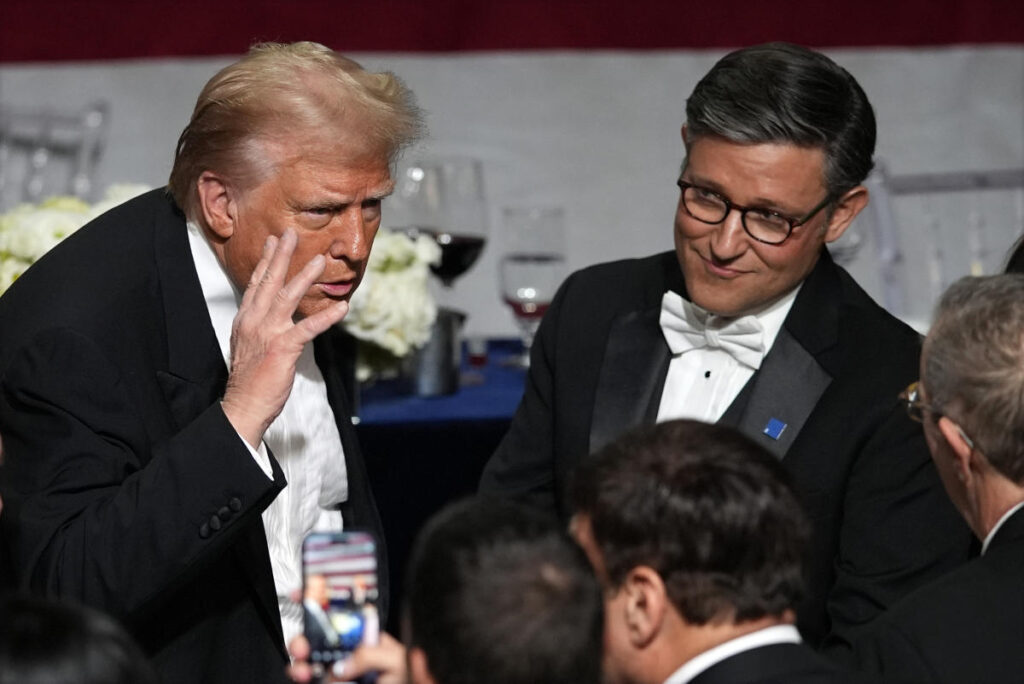In the wake of Donald Trump’s electoral victory, he seemed poised to command the Republican Party with a strong agenda focused on building the economy. His administration appeared stable as he garnered support for his Cabinet appointments and cultivated relationships with influential business leaders and foreign dignitaries. However, a series of recent setbacks have thrown the political landscape into turmoil, shaking his solid footing just as he prepares to take office. Notably, the Federal Reserve’s unexpected interest rate cut coincided with a sudden market downturn during the holiday season, with consumer spending at an all-time high. As these dynamics played out, Trump’s ally, tech mogul Elon Musk, publicly attacked a crucial spending bill backed by Speaker Mike Johnson, complicating the party’s position further.
The convergence of these events has placed pressure on GOP leaders as a potential government shutdown looms. With only hours remaining to finalize a budget plan, Trump’s comments on the matter have reverberated across Capitol Hill, aligning many Republican lawmakers with his perspective. The most pressing concern is the prospect of a government shutdown over the holidays, a scenario that is historically unpopular among voters. Echoing sentiments from 2017, when Republicans barely managed a continuing resolution after contentious negotiations, the parallels are noticeable. Previous experiences underline the precarious nature of congressional leadership amidst party divisions and external pressures.
Elon Musk’s additional remarks that Congress should refrain from passing bills until Trump’s inauguration suggest a radical departure from typical legislative procedures, with some Republican figures now openly advocating for a shutdown. Lawmakers like Rep. Tim Burchett and Marjorie Taylor Greene have enthusiastically supported the notion of halting government functions until the new administration takes the reins. This strategy, however, raises alarms about the political ramifications of such a stance, given that shutdowns can alienate the very constituents the GOP seeks to rally in support of their policies.
As the situation evolves, Speaker Johnson and Trump’s team are scrambling to negotiate a stopgap budget plan aimed at averting a government closure that could tarnish the Republican image right before the new administration begins. Discussions have focused on including provisions for disaster aid, postponing contentious debt limit discussions, and extending agricultural legislation to create a compromise that can be accepted by both sides. This urgent negotiation highlights the delicate balance of power and the necessity for unity among Republicans as they embark on a new chapter in governance.
On the opposite side of the aisle, Democrats are strategically monitoring the Republican chaos, recognizing opportunities to critique GOP actions. White House Press Secretary Karine Jean-Pierre characterized GOP tactics as detrimental to American families, asserting that any resultant shutdown would not only disrupt government services but also exacerbate economic instability. Meanwhile, House Minority Leader Hakeem Jeffries pointedly blamed the Republicans for breaking agreements designed to maintain government operations, framing their actions as irresponsible and politically motivated. The ongoing discord encapsulates a broader battle for messaging and public perception, highlighting the stakes involved in the potential shutdown.
In conclusion, the current landscape for Trump and the Republican Party is a turbulent one. As they navigate through financial, political, and leadership challenges, there are serious risks associated with leveraging shutdown strategies and divisive rhetoric. The successes and missteps in these upcoming hours could set the tone for Trump’s administration and determine the party’s effectiveness in executing its promised agenda. As negotiations continue, the GOP must contend with internal pressures and external criticisms while striving to uphold its commitment to governance amidst rampant partisan conflicts.

